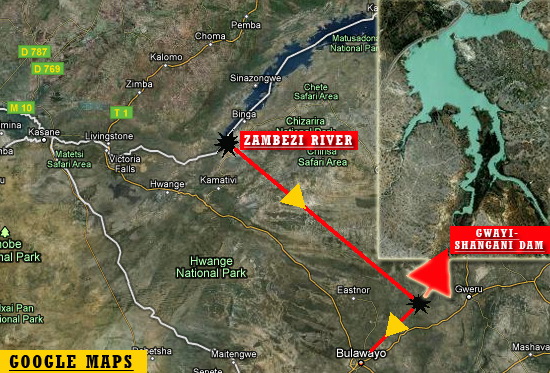The government has reportedly relinquished control of the Matabeleland Zambezi Water Project (MZWP) and handed it over to the Matabeleland Collective and its technical partner the Matabeleland Zambezi Water Trust (MZWT).
The Matabeleland Collective is a grouping of civil society organisations from the southern region while MZWT was set up to oversee the implementation of the water project.
This comes after the Matabeleland Collective met President Emmerson Mnangagwa at the Bulawayo State House in March.
The MZWP was first mooted in 1912 as a long-term solution to Bulawayo’s water crisis but has failed to be implemented in full, as successive governments before and after independence continued shifting goalposts.
In December 2012, under the Government of National Unity(GNU), the MZWP was renamed the National Matabeleland Zambezi Water Project and headed by the then minister of Water and Infrastructural Development Samuel Sipepa Nkomo who announced that the government would take over the project as it had secured $864 million from China Exim Bank to complete the project
The then Finance minister, Tendai Biti presided over the signing of a contract between the government of Zimbabwe and the Chinese Export and Import Bank but later it was reported the Chinese who had pledged to fund the project had abandoned it, saying Zimbabwe was a high investment risk.
However, in a new development, the Matabeleland Collective announced that the Ministry of Lands, Agriculture, Water, Climate and Rural Resettlement permanent secretary Engineer Ringson Chitsiko on behalf of government had handed over the water project to them.
“The permanent secretary met with the Matabeleland Collective leadership on 17 April 2019 as a follow up to President Mnangagwa instruction to the cabinet for implementation on the promises made to members after the March 21, 2019 engagement at State House in Bulawayo,” said the collective in a statement
The grouping claimed it requested the return of the MZWP as part of its “Compensatory Development Devolution (CDD) Model, a unique and new approach, said to be an important vehicle in resuscitating the project.
“Phase one of the project, building of the Gwayi-Shangani Dam has slowed down and the completion date of December 2019 seems unreachable due to lack of direct interest, local ownership and passion for development,” the grouping said.
“The project had since 2012 been taken over by the government as a ‘national project’ but the pace of development was slowing to critical levels. In returning ownership of the project to Matabeleland, Matabeleland Collective expects increased zeal and energy to development in the region as power over this project has now devolved.”
The Permanent secretary pledged that Government would continue to support all the efforts of Matabeleland Collective and its technical partners including continuing to source funding partners.
“The Office of President and Cabinet represented by the permanent secretary of Justice Legal and Parliamentary Affairs, Virginia Mabiza, formally handed over to the Matabeleland Collective, the Implementation Matrix in Bulawayo on April 9, 2019. Matabeleland Collective had asked for the project to return home as part of its devolution and equalisation mandate,” the collective noted.
Matabeleland Collective has now called upon communities to participate in the envisioning process once again and interested stakeholders to support either technically or through other means and speed up the project implementation.
“Matabeleland Collective and MZWT will now formalise their implementation role of the project with Government and the Zimbabwe National Water Authority and provide institutional arrangements and confirm funding frameworks and modalities that put people of Matabeleland at the centre of this development.”

